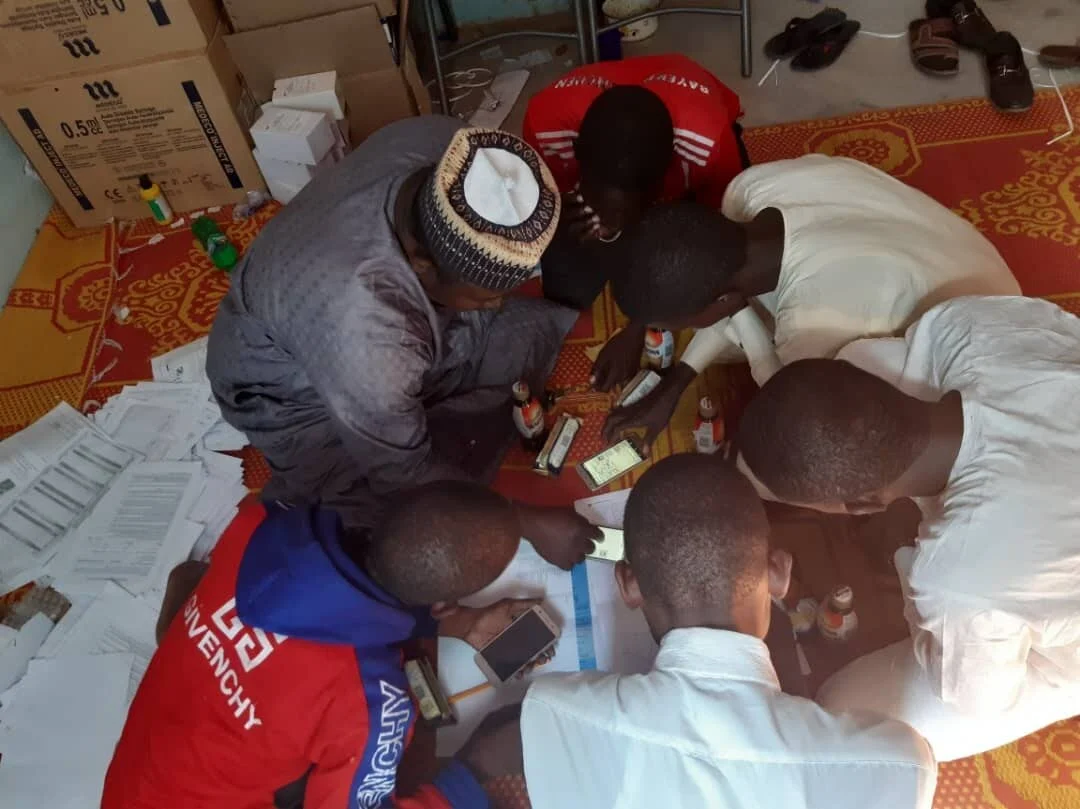Due to the vulnerability in Borno State, the National Emergency Operations Center (NEOC) launched targeted polio immunization activities in the state, to increase herd immunity and stop the transmission of the poliovirus.
The bulk of the work lies on the shoulders of Dr. Aliyu Shettima, the Borno State Incident Manager. He is responsible for translating and adapting the National Polio Eradication Plan to suit Borno’s peculiar contexts. In collaboration with partners, he develops targets, plans, implements and monitors immunization campaigns across the state.
Apart from the security risks which made some local government areas (LGAs) in Borno state very hard to reach by vaccinators, tracking missed settlements was another challenge. The number of chronically missed settlements— settlements missed in three consecutive campaigns—was increasing due to the inability to follow up on missed settlements between campaigns. Additionally, the accessibility of settlements was frequently changing and so, Dr. Shettima and his team were faced with the arduous task of constantly adjusting the microplans for various interventions.
“Before 2018, it was very hard to track the settlements that were missed on a daily basis. Another pressing issue was that accessibility to a settlement could change in a matter of days, depending on the security condition and so we always had to adjust the microplan for our interventions. This made it very difficult to follow up on missed settlements and sometimes, some settlements with eligible children would be missed in three consecutive campaigns. This posed a serious threat to the eradication of polio in Borno State.”
Since 2016, eHealth Africa (eHA) and other partners such as the World Health Organization (WHO), United Nations Children’s Fund (UNICEF), Bill and Melinda Gates Foundation (BMGF), Solina Health, and the U.S. Centers for Disease Control (CDC), have collaborated with the government of Nigeria to launch robust response strategies to expand polio vaccination from accessible areas to inaccessible areas in Borno State. eHA’s team of field officers facilitate the provision of devices that use advanced GIS technology to track reached settlements and provide geo-evidence of visits by the vaccination teams.
In November 2017, eHealth Africa introduced the Missed Settlement Tracking and Analysis (MISTA) tool in Borno state to solve the persistent challenge of missed settlements. MISTA tracks the visitation status of settlements based on a daily implementation plan. eHA consultants use the tool to generate the visitation analysis based on the geo-evidence (tracks) collected by field officers during campaign activities. The analysis is then presented at the evening review meetings at the LGAs.
The results of analysis provide the Borno state IM with the real time, accurate data which he needs to provide oversight to the LGAs so that they can plan for missed settlements while the campaign is still ongoing, rather than at the end.
eHA consultants also work closely with the LGA teams to collect geolocation data, security information, and information on the dynamic habitation patterns of settlements to enable efficient planning of campaigns irrespective of changes in settlement accessibility. Using this information, Dr. Shettima and the Borno State data team can update the master list of settlements, thereby ensuring their inclusion in future microplans.
“The MISTA tool has been a game changer, because it helps us to know the number of settlements missed on daily basis, so that they can be visited either during the campaign or scheduled for the next campaign.”
The introduction of MISTA has completely transformed settlement tracking in Borno state and now the number of chronically missed settlements is dropping. Missed settlements have dropped from 11% to 4% in one year from November 2017 to November 2018 and coverage during IPDs has increased from 81% to 95.4%.
This dramatic improvement in the coverage of settlements makes us one step closer to a Polio-free Borno and, hence, a Polio-free Nigeria.





